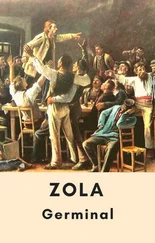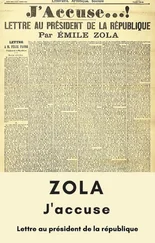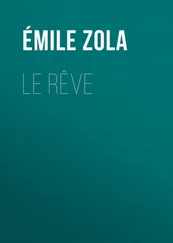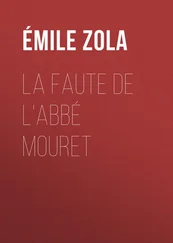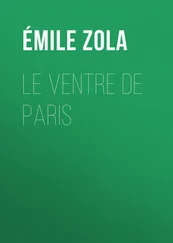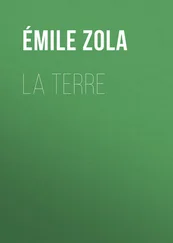Émile Zola - His Masterpiece
Здесь есть возможность читать онлайн «Émile Zola - His Masterpiece» — ознакомительный отрывок электронной книги совершенно бесплатно, а после прочтения отрывка купить полную версию. В некоторых случаях можно слушать аудио, скачать через торрент в формате fb2 и присутствует краткое содержание. Жанр: literature_19, foreign_antique, foreign_prose, на английском языке. Описание произведения, (предисловие) а так же отзывы посетителей доступны на портале библиотеки ЛибКат.
- Название:His Masterpiece
- Автор:
- Жанр:
- Год:неизвестен
- ISBN:нет данных
- Рейтинг книги:5 / 5. Голосов: 1
-
Избранное:Добавить в избранное
- Отзывы:
-
Ваша оценка:
- 100
- 1
- 2
- 3
- 4
- 5
His Masterpiece: краткое содержание, описание и аннотация
Предлагаем к чтению аннотацию, описание, краткое содержание или предисловие (зависит от того, что написал сам автор книги «His Masterpiece»). Если вы не нашли необходимую информацию о книге — напишите в комментариях, мы постараемся отыскать её.
His Masterpiece — читать онлайн ознакомительный отрывок
Ниже представлен текст книги, разбитый по страницам. Система сохранения места последней прочитанной страницы, позволяет с удобством читать онлайн бесплатно книгу «His Masterpiece», без необходимости каждый раз заново искать на чём Вы остановились. Поставьте закладку, и сможете в любой момент перейти на страницу, на которой закончили чтение.
Интервал:
Закладка:
‘Eh! what? What am I going to send to the Salon? A small landscape, perhaps; a little bit of the Seine. It is so difficult to decide; first of all I must feel pleased with it myself.’
He had suddenly become timid and anxious again. His artistic scruples, his conscientiousness, kept him working for months on a canvas the size of one’s hand. Following the track of the French landscape painters, those masters who were the first to conquer nature, he worried about correctness of tone, pondering and pondering over the precise value of tints, till theoretical scruples ended by making his touch heavy. And he often did not dare to chance a bright dash of colour, but painted in a greyish gloomy key which was astonishing, when one remembered his revolutionary passions.
‘For my part,’ said Mahoudeau, ‘I feel delighted at the prospect of making them squint with my woman.’
Claude shrugged his shoulders. ‘Oh! you’ll get in, the sculptors have broader minds than the painters. And, besides, you know very well what you are about; you have something at your fingers’ ends that pleases. There will be plenty of pretty bits about your vintaging girl.’
The compliment made Mahoudeau feel serious. He posed above all for vigour of execution; he was unconscious of his real vein of talent, and despised gracefulness, though it ever invincibly sprung from his big, coarse fingers – the fingers of an untaught working-man – like a flower that obstinately sprouts from the hard soil where the wind has flung its seed.
Fagerolles, who was very cunning, had decided to send nothing, for fear of displeasing his masters; and he chaffed the Salon, calling it ‘a foul bazaar, where all the bad painting made even the good turn musty.’ In his inmost heart he was dreaming of one day securing the Rome prize, though he ridiculed it, as he did everything else.
However, Jory stationed himself in the middle of the room, holding up his glass of beer. Sipping every now and then, he declared: ‘Well, your hanging committee quite disgusts me! I say, shall I demolish it? I’ll begin bombarding it in our very next number. You’ll give me some notes, eh? and we’ll knock it to pieces. That will be fine fun.’
Claude was at last fully wound up, and general enthusiasm prevailed. Yes, yes, they must start a campaign. They would all be in it, and, pressing shoulder to shoulder, march to the battle together. At that moment there was not one of them who reserved his share of fame, for nothing divided them as yet; neither the profound dissemblance of their various natures, of which they themselves were ignorant, nor their rivalries, which would some day bring them into collision. Was not the success of one the success of all the others? Their youth was fermenting, they were brimming over with mutual devotion; they indulged anew in their everlasting dream of gathering into a phalanx to conquer the world, each contributing his individual effort; this one helping that one forward, and the whole band reaching fame at once in one row. Claude, as the acknowledged chief, was already sounding the victory, distributing laurels with such lyrical abundance that he overlooked himself. Fagerolles himself, gibing Parisian though he might be, believed in the necessity of forming an army; while even Jory, although he had a coarser appetite, with a deal of the provincial still about him, displayed much useful comradeship, catching various artistic phrases as they fell from his companions’ lips, and already preparing in his mind the articles which would herald the advent of the band and make them known. And Mahoudeau purposely exaggerated his intentional roughness, and clasped his hands like an ogre kneading human flesh; while Gagniere, in ecstasy, as if freed from the everlasting greyishness of his art, sought to refine sensation to the utmost limits of intelligence; and Dubuche, with his matter-of-fact convictions, threw in but a word here and there; words, however, which were like club-blows in the very midst of the fray. Then Sandoz, happy and smiling at seeing them so united, ‘all in one shirt,’ as he put it, opened another bottle of beer. He would have emptied every one in the house.
‘Eh?’ he cried, ‘we’re agreed, let’s stick to it. It’s really pleasant to come to an understanding among fellows who have something in their nuts, so may the thunderbolts of heaven sweep all idiots away!’
At that same moment a ring at the bell stupefied him. Amidst the sudden silence of the others, he inquired – ‘Who, to the deuce, can that be – at eleven o’clock?’
He ran to open the door, and they heard him utter a cry of delight. He was already coming back again, throwing the door wide open as he said – ‘Ah! it’s very kind indeed to think of us and surprise us like this! Bongrand, gentlemen.’
The great painter, whom the master of the house announced in this respectfully familiar way, entered, holding out both hands. They all eagerly rose, full of emotion, delighted with that manly, cordial handshake so willingly bestowed. Bongrand was then forty-five years old, stout, and with a very expressive face and long grey hair. He had recently become a member of the Institute, and wore the rosette of an officer of the Legion of Honour in the top button-hole of his unpretentious alpaca jacket. He was fond of young people; he liked nothing so much as to drop in from time to time and smoke a pipe among these beginners, whose enthusiasm warmed his heart.
‘I am going to make the tea,’ exclaimed Sandoz.
When he came back from the kitchen, carrying the teapot and cups, he found Bongrand installed astride a chair, smoking his short cutty, amidst the din which had again arisen. Bongrand himself was holding forth in a stentorian voice. The grandson of a farmer of the Beauce region, the son of a man risen to the middle classes, with peasant blood in his veins, indebted for his culture to a mother of very artistic tastes, he was rich, had no need to sell his pictures, and retained many tastes and opinions of Bohemian life.
‘The hanging committee? Well, I’d sooner hang myself than belong to it!’ said he, with sweeping gestures. ‘Am I an executioner to kick poor devils, who often have to earn their bread, out of doors?’
‘Still, you might render us great service by defending our pictures before the committee,’ observed Claude.
‘Oh, dear, no! I should only make matters worse for you – I don’t count; I’m nobody.’
There was a chorus of protestations; Fagerolles objected, in a shrill voice:
‘Well, if the painter of “The Village Wedding” does not count – ’
But Bongrand was getting angry; he had risen, his cheeks afire.
‘Eh? Don’t pester me with “The Wedding”; I warn you I am getting sick of that picture. It is becoming a perfect nightmare to me ever since it has been hung in the Luxembourg Museum.’
This ‘Village Wedding’ – a party of wedding guests roaming through a corn-field, peasants studied from life, with an epic look of the heroes of Homer about them – had so far remained his masterpiece. The picture had brought about an evolution in art, for it had inaugurated a new formula. Coming after Delacroix, and parallel with Courbet, it was a piece of romanticism tempered by logic, with more correctness of observation, more perfection in the handling. And though it did not squarely tackle nature amidst the crudity of the open air, the new school claimed connection with it.
‘There can be nothing more beautiful,’ said Claude, ‘than the two first groups, the fiddler, and then the bride with the old peasant.’
‘And the strapping peasant girl, too,’ added Mahoudeau; the one who is turning round and beckoning! I had a great mind to take her for the model of a statue.’
‘And that gust of wind among the corn,’ added Gagniere, ‘and the pretty bit of the boy and girl skylarking in the distance.’
Читать дальшеИнтервал:
Закладка:
Похожие книги на «His Masterpiece»
Представляем Вашему вниманию похожие книги на «His Masterpiece» списком для выбора. Мы отобрали схожую по названию и смыслу литературу в надежде предоставить читателям больше вариантов отыскать новые, интересные, ещё непрочитанные произведения.
Обсуждение, отзывы о книге «His Masterpiece» и просто собственные мнения читателей. Оставьте ваши комментарии, напишите, что Вы думаете о произведении, его смысле или главных героях. Укажите что конкретно понравилось, а что нет, и почему Вы так считаете.


